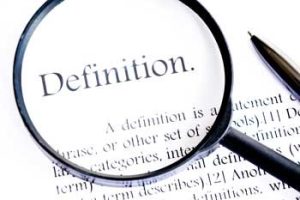The term Mutual Evaluation Process refers to the period during which both the franchisor and the prospective franchisee assess each other’s suitability before entering into a Franchise Agreement. It ensures that both parties understand expectations, qualifications, and values alignment before committing to the franchise relationship.
The Mutual Evaluation Process is an essential phase of franchise development where both the franchisor and potential franchisee engage in a structured assessment to determine whether a partnership is the right fit. During this process, the franchisor evaluates the candidate’s financial resources, experience, business acumen, and personal values, while the franchisee assesses the franchisor’s brand, support systems, culture, and financial potential. The process typically includes completing an application, reviewing the Franchise Disclosure Document (FDD), attending discovery meetings or “Discovery Day,” and engaging in open discussions with current franchisees. The goal of the Mutual Evaluation Process is to promote transparency and ensure that both parties make an informed, confident decision about moving forward with the franchise opportunity. This process protects the brand’s integrity and reduces the likelihood of mismatched expectations that could harm the franchise relationship.
Additional Definition: The understanding that both the franchisor and the prospective franchisee are evaluating each other during the due-diligence process to determine if it would be mutually beneficial to move forward into a franchise relationship.
The concept of the  developed as franchising matured and became more regulated in the late 20th century. Early franchise sales often focused solely on recruiting franchisees quickly, sometimes without adequate vetting, leading to higher failure rates and brand inconsistency. As the industry evolved, franchisors recognized that selecting the right partners was as important as selling franchises. Modern franchising emphasizes this mutual assessment approach to maintain brand quality, align values, and ensure long-term success. Today, leading franchise systems highlight the Mutual Evaluation Process as a core component of ethical and sustainable franchise development.
developed as franchising matured and became more regulated in the late 20th century. Early franchise sales often focused solely on recruiting franchisees quickly, sometimes without adequate vetting, leading to higher failure rates and brand inconsistency. As the industry evolved, franchisors recognized that selecting the right partners was as important as selling franchises. Modern franchising emphasizes this mutual assessment approach to maintain brand quality, align values, and ensure long-term success. Today, leading franchise systems highlight the Mutual Evaluation Process as a core component of ethical and sustainable franchise development.
Learn more at: The Educated Franchisee, 3rd Edition
| Stage | Franchisor Activities | Franchisee Activities |
|---|---|---|
| 1. Initial Inquiry | Provides introductory information, business overview, and initial qualification criteria. | Submits inquiry or application and reviews high-level brand details. |
| 2. Preliminary Qualification | Evaluates candidate’s background, financial capability, and experience. | Completes franchise application and provides financial documentation. |
| 3. FDD Review | Provides the Franchise Disclosure Document and answers legal and financial questions. | Reviews the FDD with advisors, focusing on fees, obligations, and earnings potential. |
| 4. Discovery Process | Invites candidate to meetings or “Discovery Day” to meet key team members. | Evaluates franchisor’s culture, training, and support systems. |
| 5. Final Approval | Makes final selection decision and extends the franchise offer. | Decides whether to proceed and prepares for signing the Franchise Agreement. |
| Aspect | Mutual Evaluation Process | Traditional Sales Approach |
|---|---|---|
| Primary Focus | Fit, values alignment, and mutual readiness | Franchise sale completion |
| Franchisee Role | Active participant in research and decision-making | Primarily evaluated by the franchisor |
| Outcome | Informed, mutually agreed partnership | Higher potential for mismatch or early failure |
| Transparency Level | High—emphasizes open communication and due diligence | Variable—focused on sales presentation |
A prospective franchisee interested in a national coffee brand completes a qualification questionnaire and reviews the FDD. After phone interviews and financial verification, the franchisor invites the candidate to a Discovery Day at its headquarters. Both parties discuss long-term goals, cultural alignment, and market opportunities. Following the meeting, both sides agree to move forward, reflecting a successful Mutual Evaluation Process that ensures mutual confidence and trust before signing the Franchise Agreement.
The Mutual Evaluation Process is a cornerstone of ethical franchising, designed to protect both the franchisor and the franchisee by promoting transparency, compatibility, and mutual respect. By allowing both parties to assess fit and readiness before signing, this process builds the foundation for a stronger, more successful long-term franchise relationship.